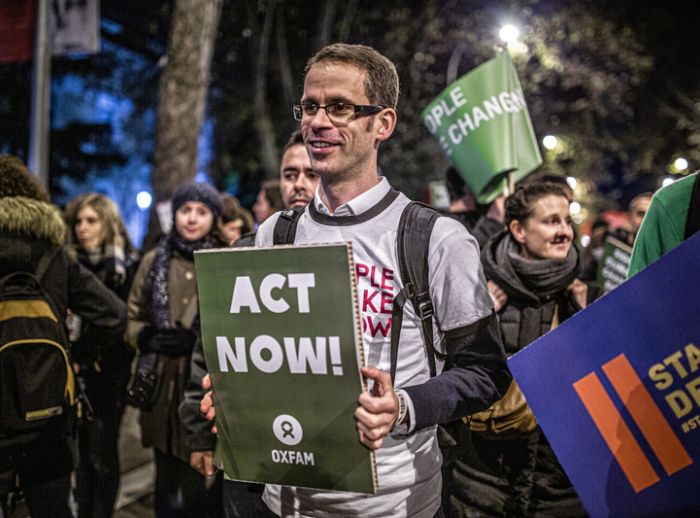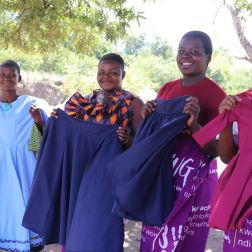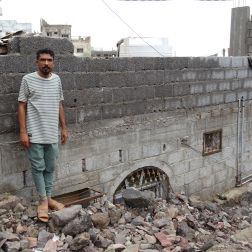- 4 mins read time
- Published: 23rd January 2020
Our next government must think outside the ballot box
As 8th February fast approaches, it’s almost crunch time in this snap general election. Ireland’s election cycles are short, but five years can make a big difference in times of massive change.
We want to see Ireland tackle the most important issues of our time, like climate change, gender inequality and tax justice – issues that affect all of us, not just in Ireland, but around the world. If this country leads the way, others will follow. Yet this kind of leadership requires politicians who think outside the box – way beyond the ballot box and the next election cycle. With the global community lurching from one crisis to the next, short-sighted policies are no longer an option from the political leaders of any country.

As an island nation with a huge potential to harness the power of renewable energy, Ireland could show the kind of leadership the world really needs. We want the next government to take faster, fairer action in tackling climate change and supporting poorer countries already experiencing extreme weather events. Drought and floods have wreaked havoc on the communities we work with, destroying livelihoods and the chance for families to have a brighter future. Wealthier nations like Ireland must now step up and take responsibility for our emissions.
We need to live more sustainably so developing the circular economy, which eliminates waste and the continual use of resources, would be a win-win for both the environment and our climate. It would help tackle big polluters like the textile industry, which soaks up vast quantities of water – our most precious resource – every day and creates a throwaway society where millions of tonnes of clothes are dumped in landfill every year. We’re calling on the next government to incentivise the circular economy by slashing VAT for services that extend the lifetime of products and creating a waste prevention plan for the textiles industry.
We also want the new government to address economic inequality and the care economy, which mostly affects women and girls. Right now, the world’s 2,153 billionaires own more wealth than 4.6 billion people worldwide. While poverty rates fell in the last two decades, recent evidence suggests that the pace of poverty reduction has actually slowed down. And Ireland is mirroring this global trend when it comes to wealth inequality – we have the fifth largest number of billionaires per capita in the world!
One way that our upside-down economic system deepens inequality is by chronically undervaluing care work – usually done by women, who are often left little time to get an education, earn a decent living or have a say in how our societies are run, and are therefore trapped in poverty. Across the world, women and girls are putting in 12.5 billion hours of unpaid care work every day, such as looking after children and the elderly, which amounts to a contribution to the global economy of at least $10.8 trillion a year – more than three times the size of the global tech industry.
In Ireland alone, women spend 38 million hours a week carrying out unpaid care work, adding at least €24 billion of value to the Irish economy every year. We’re asking the next government to value and invest in our care system to find real solutions to the disproportionate impact unpaid care work has on Irish women.
To tackle inequality head on, we’re encouraging the next government to help overhaul the global corporate tax system. By not paying its way, big business deprives poorer nations of vital funds that could be spent on services like health and education. While Ireland has made some efforts to tackle tax avoidance, it hasn’t gone far enough. We want multi-national companies to be more transparent in how they operate and to report on their activities at an EU level. Profits should not be shifted away from the countries they were generated – otherwise, the gap between rich and poor will continue to grow.
To tackle all these issues, we want the next government to:
- Implement faster, fairer climate action to meet Ireland's commitments to address the climate emergency and support poorer countries to cope with climate change
- Support sustainability through developing the circular economy
- Invest in our care system to help address gender inequality
- Support a fundamental reform of the global corporate tax system




